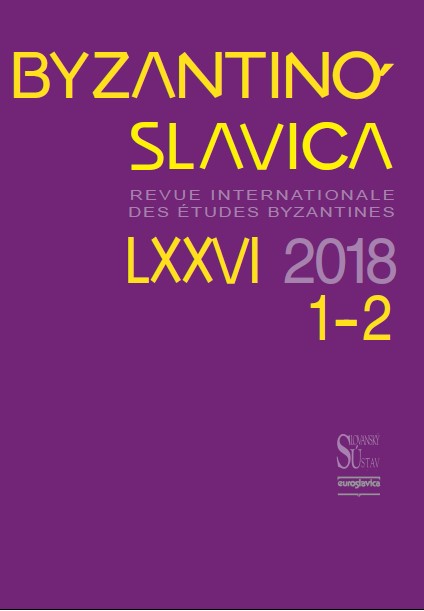The Place of Anti-Latin Polemic in the Writing of Early Rus
The Place of Anti-Latin Polemic in the Writing of Early Rus
Author(s): Catherine P. SykesSubject(s): Russian Literature, 6th to 12th Centuries, Philology
Published by: AV ČR - Akademie věd České republiky - Slovanský ústav and Euroslavica
Keywords: early Rus; Byzantine; russian culture; orthodoxy in Russia
Summary/Abstract: ¨What was the function of anti-Latin polemic in the culture of early Rus? Apparently trivial and exaggeratedly censorious though many anti-Latin accusations may be, they cannot be dismissed as a Byzantine irrelevance: after all, one of the most ideologically signifi cant passages in the Rusian Primary Chronicle, the account of Vladimir’s conversion to Christianity in 988, contains two substantial passages of anti-Latin polemic. Neither can polemic be considered simply a refl ection of anti-Latin feeling among the Rus: there is very little evidence for this, even among ecclesiastics. How then are we to interpret the signifi cance and role of the originally Byzantine genre of anti- Latin polemic in the written culture of early Rus? The fi rst half of this paper presents evidence for active transmission and evolution of anti-Latin polemic in early Rus (to c. 1300), examining the ways in which polemic was adapted for a Rusian audience. It demonstrates that anti-Latin polemic in Rus was not simply an atrophied Byzantine genre, mechanically reproduced by Slavonic copyists. Rather, this polemic was subtly transformed in cultural translation to Rus – even if the fundamental content of its accusations remained Byzantine in origin. The second half discusses the function of anti-Latin polemic in Rusian culture. Polemic was neither a guide to nor a refl ection of real-life attitudes to the Latins. Rather, like much of the canon law with which it tended to circulate, anti-Latin polemic was an indispensable element of the edifi ce of Orthodoxy in Rus. Rusian texts’ affirmation of the diff erences, often quite minor but therefore particularly threatening, between the Latins and the Orthodox constituted an affi rmation of orthodoxy itself.
Journal: Byzantinoslavica - Revue internationale des Etudes Byzantines
- Issue Year: LXXVI/2018
- Issue No: 1-2
- Page Range: 58-83
- Page Count: 26
- Language: English
- Content File-PDF

